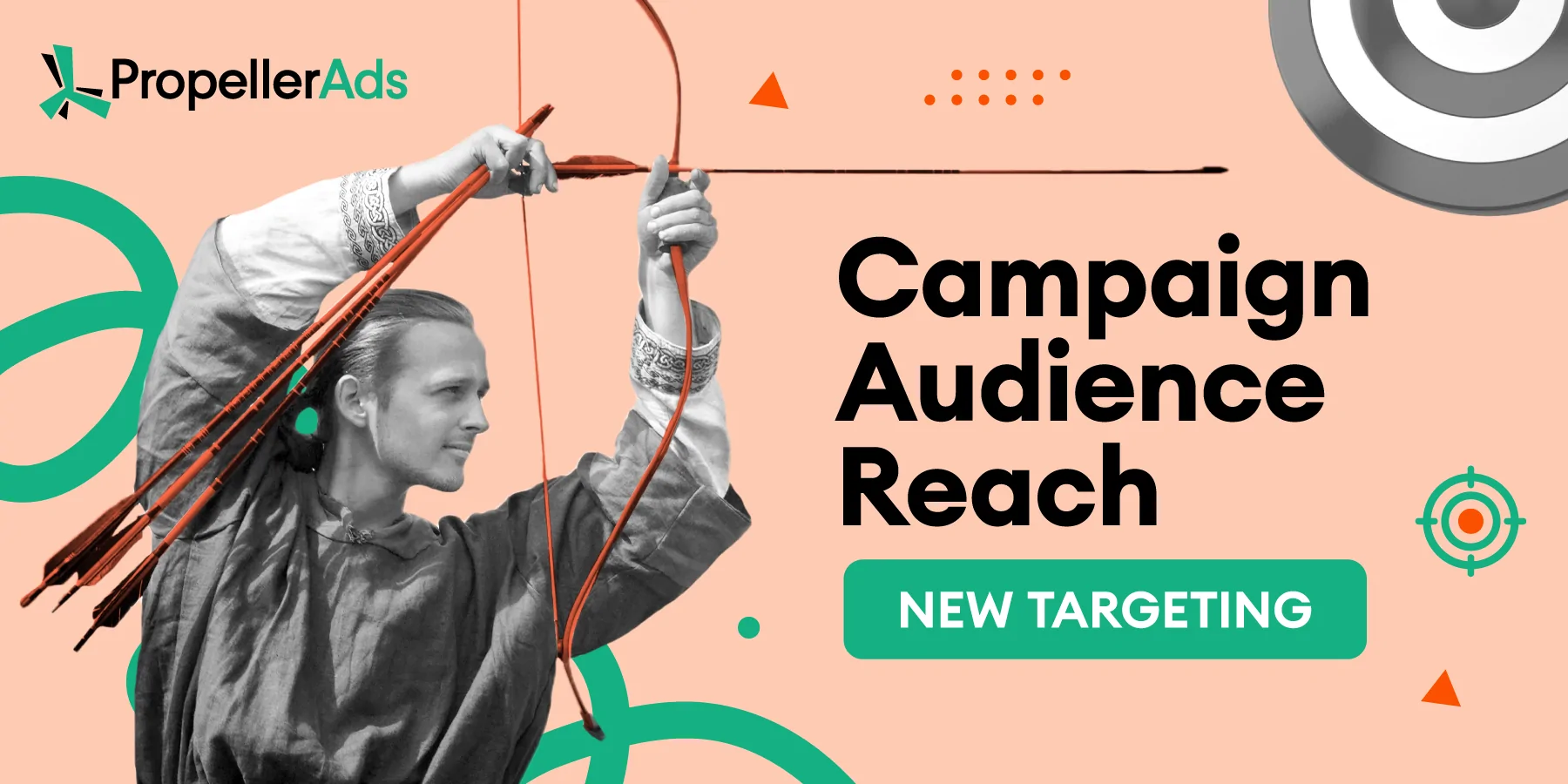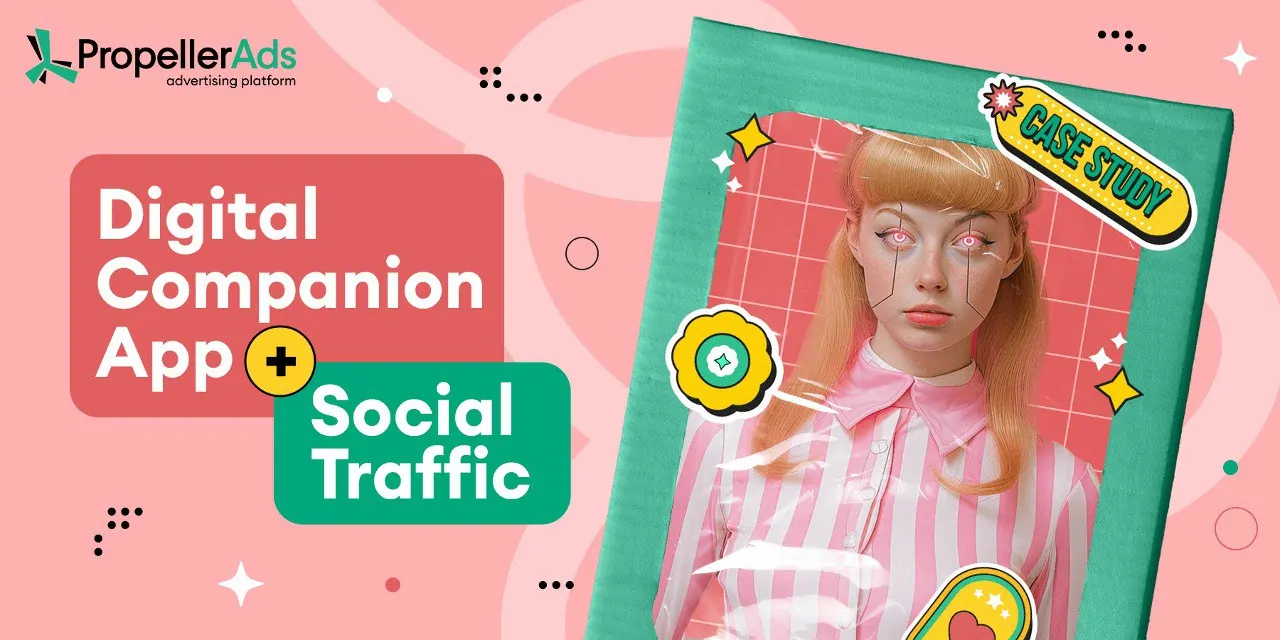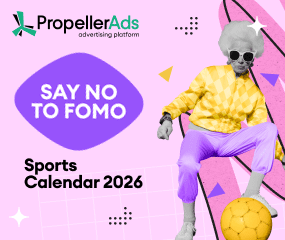The Rise of Mental Health Offers in Affiliate Marketing: Trends, Ethics & Emerging Opportunities
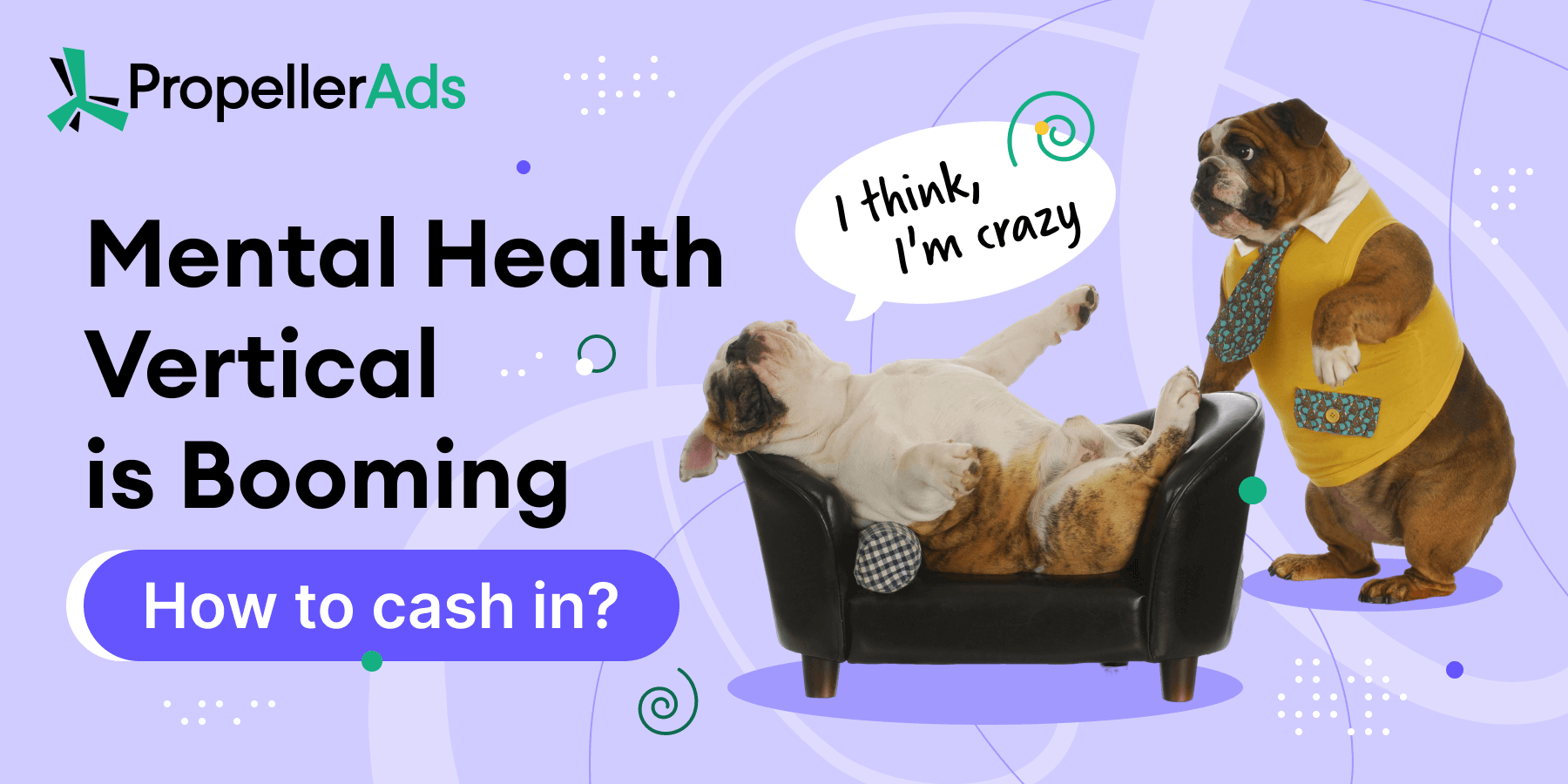
The mental health world, once limited to weekly therapy sessions or dusty self-help books, has become a dynamic and diversified industry, deeply embedded in modern digital life. Mood tracking apps, thousands of courses, psychological tests – just to name a few – are shaping the industry today.
And for affiliate marketers, this is a high-potential opportunity to connect with global audiences and cash in, of course!
To help you understand the booming trend better, we have prepared this article based on exclusive insights from our partners Flora Gasnier (Marketing Content Manager) and Alex Sidorenko (Sales & Business Development) from Mobidea – a leading affiliate network with rich experience in the mental health vertical – and Dr. Madeeha Rahim-Rasool, a practicing psychologist and industry insider.
Their input brings both strategic and ethical clarity to how we promote well-being products in the affiliate world.
Mental Health and Affiliate Marketing: A Psychologist’s Perspective
Before we talk numbers, offers, or GEOs, we need to understand what we’re really marketing. Dr. Madeeha Rahim-Rasool, a practicing psychologist with experience in affiliate marketing, offers a grounded view:
“Apps can complement therapy if it’s for mental fitness and support between psychotherapy sessions. But the marketing needs to be very careful – who are you targeting and why?”
Nice question! If you are considering promoting well-being apps and products, you definitely need to know your audience, but also – stay ethical. Dr. Madeeha adds:
“So marketers and developers shouldn’t target the very elderly or those who may not be able to use smartphones with complicated apps and lots of features. They need to think about access to these apps, ease of use, and things like language.”
And when talking about language, we mean the marketing message to be made. According to Dr. Madeeha, offers that use language like “mental fitness,” “resilience,” or “well-being” often resonate with the audience more (and stay within ethical frame) – especially and namely for people who don’t consider themselves mentally ill, but are looking for daily support, stress relief, and emotional regulation.
“I think it’s when people don’t have mental health illnesses but maybe their wellbeing or mental fitness needs improvement, they may seek help through apps,” – Dr. Madeeha Rahim-Rasool.
In this perspective, we can name barriers – legal and ethical – marketers should be aware of. We also believe these concerns can affect conversion rates and long-term retention, so pay special attention to them:
Ethics and regulation: in some regions (like the EU), mental health-related services may fall under stricter advertising regulations (make sure to check your targeting). Plus, tailor your messaging accordingly: don’t make claims you can’t prove (“cures anxiety in 3 days”) as well as any other certain health-related claims, particularly those involving treatment or diagnosis.
Privacy and data concerns: affiliate marketers should avoid offers from vendors with blurry practices around consent, storage, or third-party data sharing.
Cultural sensitivity and affordability: another concern of our insider psychologist, Dr. Madeeha, who believes the product must respect cultural nuances in how emotions are expressed or how self-care is perceived, which means that you need to do prior research.
Alright, so now we are fully equipped with ethical ammunition and can move to the juicy part…
Why Mental Health Is Booming According to Mobidea
As our partners from Mobidea believe, the rise of mental health tools wasn’t just a temporary reaction to the isolation and COVID-19 pandemic back in 2020 – it’s a global behavioral shift.
“People are overwhelmed and looking for ways to feel more in control of their lives again… There’s this big shift toward proactive self-care,” – Mobidea Team.
Younger generations, especially Gen Z and Millennials, are driving the change. With work pressure, screens, and the constant online buzz, emotional burnout is becoming universal, so people are not only turning to therapy, but also seeking everyday tools to stay on top of their mental well-being.
That shapes a range of key consumer mindsets, which you, as an advertiser, need to know and address in your ads:
- I want to feel better, right now
- I want to understand myself and live with more purpose
- I need help managing my emotions and setting boundaries
- I don’t want a clinical or time-consuming solution
- I prefer something I can do alone, on my phone
This shift is powering demand for fast, digestible, and non-clinical support tools – a perfect match for digital marketing and affiliate distribution.
Quick insider fact: By the way, Mobidea is currently developing a Telegram-based mini e-learning app focused on resilience, emotional intelligence, and mindfulness. It delivers 5-minute lessons, interactive quizzes, and stress-management tools – all within Telegram, no downloads or logins required. It’s designed to fit into real-life schedules, reflecting the shift toward mobile-first, low-friction learning experiences. Stay tuned for more!
What People Are Looking For: Offers That Convert
So, how does the marketing world respond to the global behavioral trends and people’s needs for emotional well-being? Let’s break down what types of offers are actually performing, and why.
Mobile Apps and Tools for Wellbeing
“Stress and anxiety tools are also everywhere right now, like guided breathing exercises, body scans, EFT tapping, and grounding techniques. They show up in apps like Headspace, Insight Timer, and Calm, but also in more DIY formats on YouTube or TikTok. What matters most is that they’re accessible, easy to follow, and available in the moment someone needs them,” – Mobidea Team.
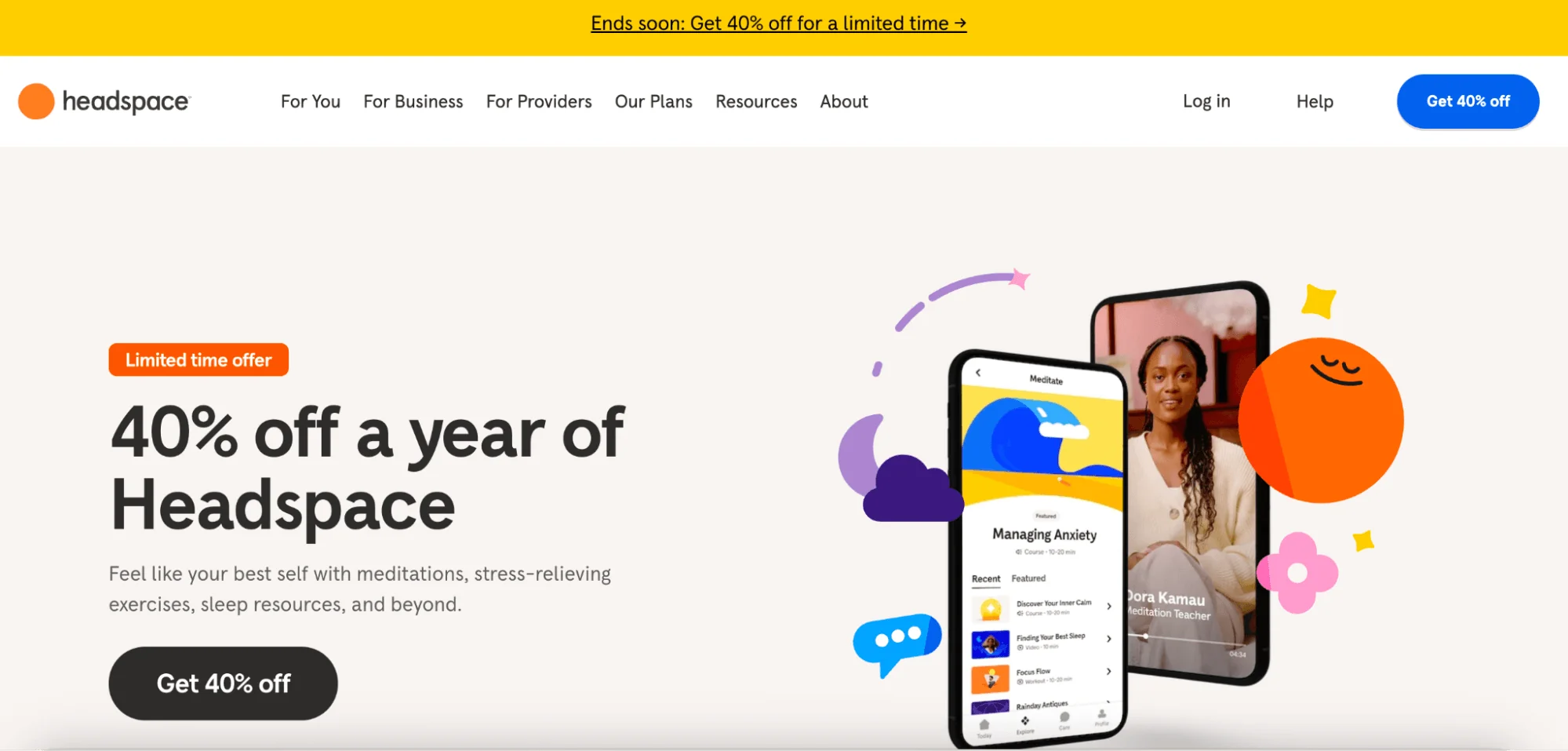
Being more self-aware, recognizing emotions, and decreasing the stress level are new large tendencies people strive for. Light, non-clinical, and interactive, such tools are in great demand.
For example, a Headspace affiliate program has a 23% (about $1,5) affiliate commission per sale, but what about other earning opportunities?
Mobidea’s Offer Highlights:
- CPAs range from $2-$7 in emerging markets (India, Southeast Asia, LATAM), and $10-$20 in Tier 1 regions (US/UK)
- EPCs typically range from $0.50 to $1.50, with higher performance when using interactive funnels like quizzes
- Ideal for promotion via low-barrier mobile apps, Telegram bots, or self-care lead magnets
Short-Form Video Courses
Psychologists explaining how to deal with a narcissist in your TikTok feed? Yes, they are popular, since mental wellness content has fully adapted to the short-form video revolution – with 10-minute lessons and tips that are informative, emotional, and easy to digest. Example – Body Language app with 100+ short videos, quizzes, and more:
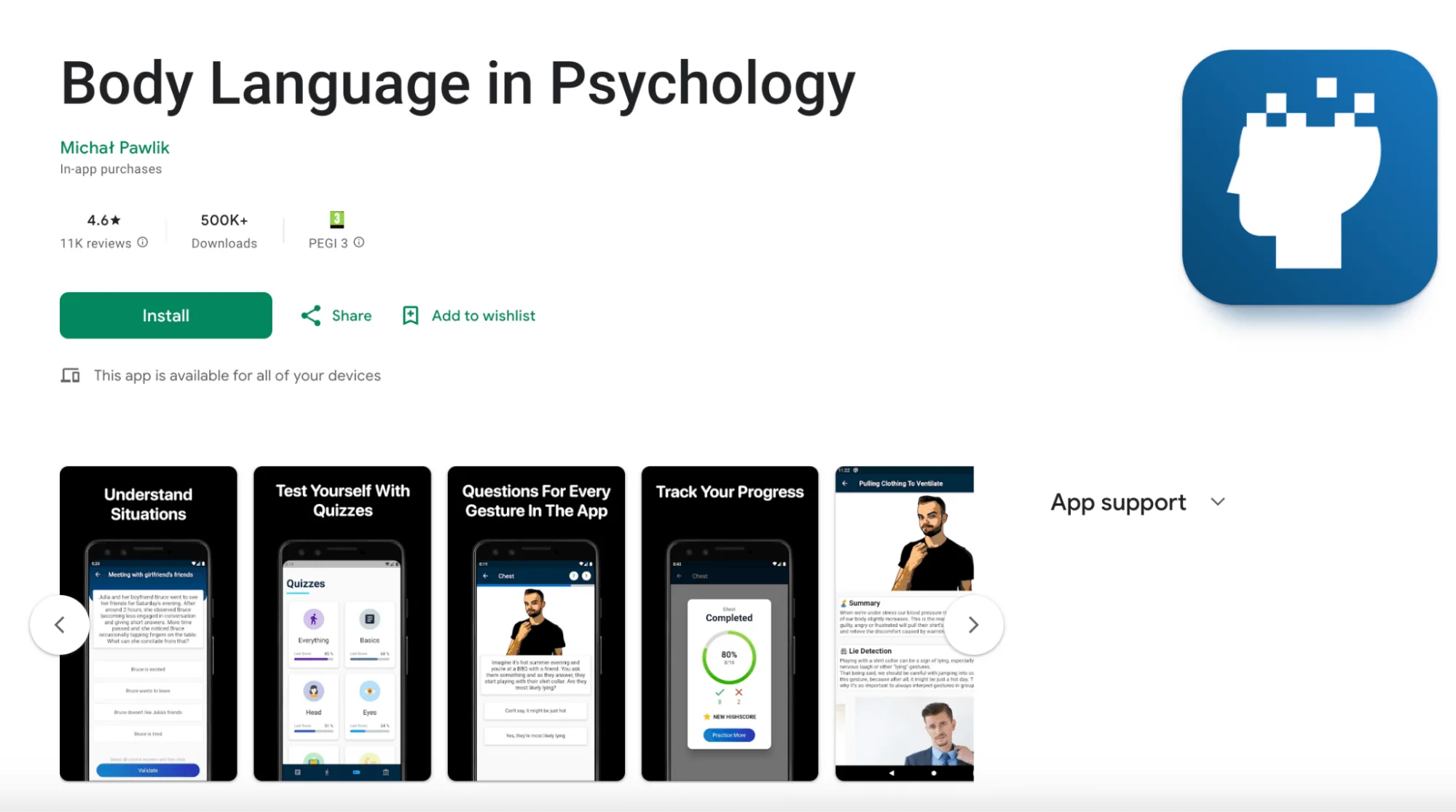
“Quick video sessions/lessons on emotional resilience or mindset shifts are popular, especially in TikTok-style formats,” – Mobidea Team.
Popular Topics Include:
- Mindfulness basics
- Emotional regulation
- Mindset reframing
- Relationship patterns and boundaries
- Morning/evening resets for anxiety
These courses thrive not only on TikTok and Instagram Reels, but also within mobile apps and LMS-style platforms that offer gamified learning.
Certified Nutra and Brain Health Products
Another popular offer type – certified Nutra. According to Mobidea’s insight, brain health and cognitive performance products remain top performers, especially in the top-tier markets, like the US and other Western GEOs. Offer example – Peak Wellness Brain+, a plant-based certified supplement with $175 payout on OfferVault:
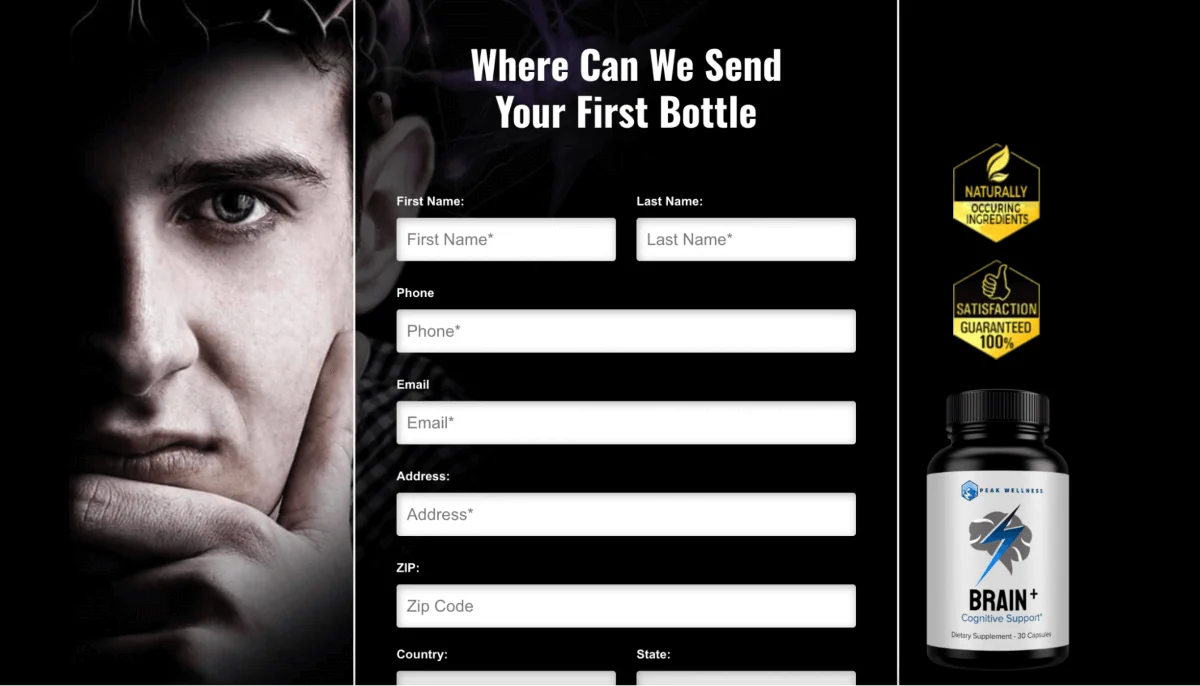
Mobidea’s Offer Highlights:
- Affiliates can earn $100+ CPA when promoting premium brain boosters, nootropics, and subscriptions
- EPCs can be from $1.00 to $5.00 with optimized funnels
This subvertical is especially strong when paired with a marketing message focused on productivity, biohacking, or burnout prevention.
Pay-Per-Call Therapy and Coaching Offers
Ideal for Tier-1 GEOs (USA, UK, Canada), these offers target users actively looking for real-time support. For this offer type, seek collaboration with offer owners who partner with reputable organizations only.
Example – Mental Health offer on Offervault, where an offer owner acts as an intermediary agent, helping people find instant assistance.
Mobidea’s Offer Highlights:
- $60-$100 CPA per qualified call
- EPCs of $0.50-$2.00, depending on call duration and traffic quality
“This may include a 1:1 virtual therapy/coaching, long-form personal growth programs… often exceeding $100 per conversion,” – Mobidea Team.
These offers perform best with warm traffic, influencers, or soft lead magnets (like emotional quizzes).
Journals, Tests, and Chatbots
Also, there are lightweight tools designed for self-reflection and tracking – a big draw for users who are emotionally self-aware but prefer solo engagement. They are friendly, very simple, don’t require any skills or knowledge and oftentimes feature cute companions that guide users through their mental journey.
For instance, Bearable app for mood tracking offers an affiliate program with 20% commission, and here is what it looks like:
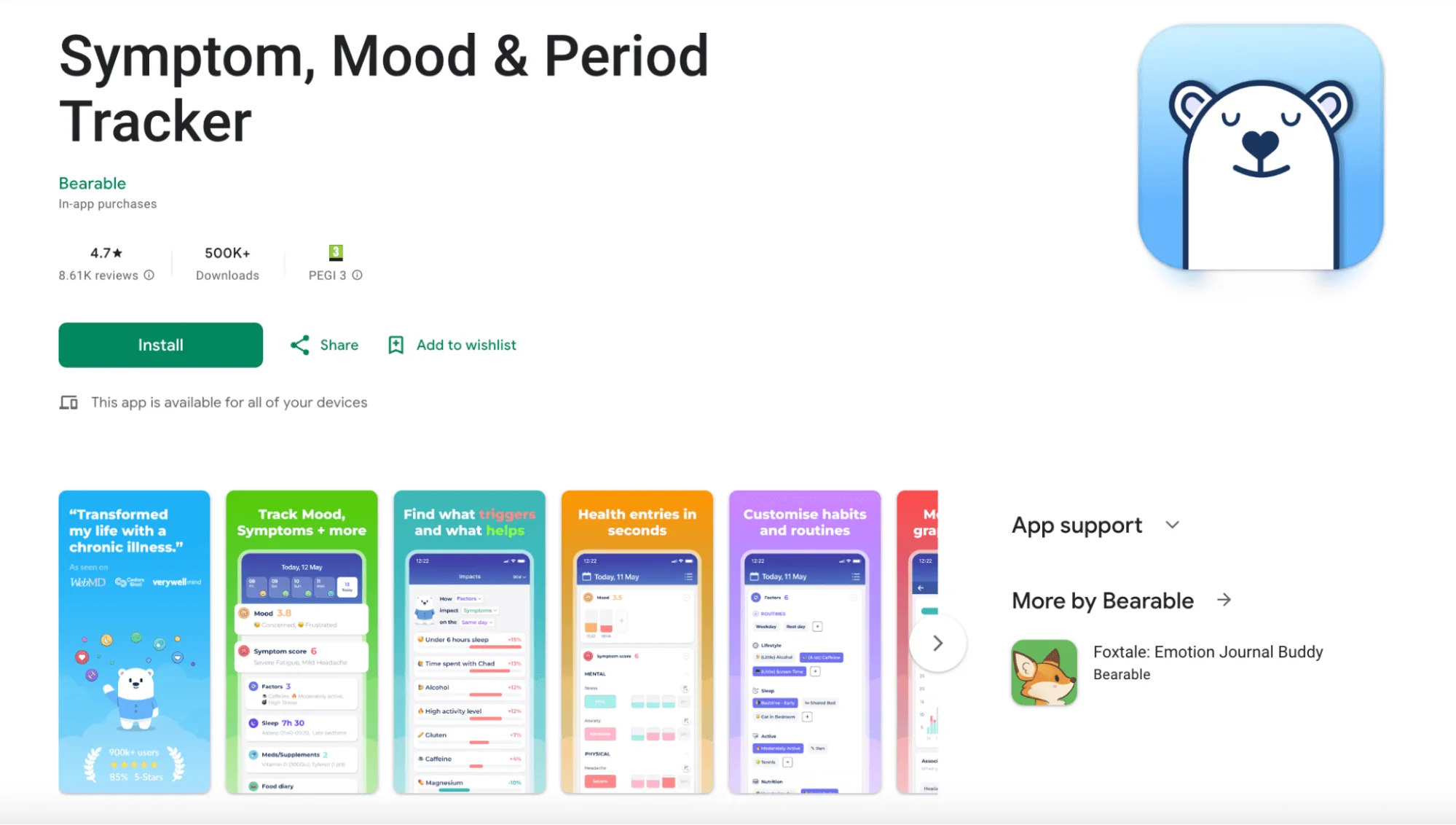
More examples include:
- Self-reflection prompts
- Emotion-naming exercises
- AI-powered daily check-ins
“People are becoming more emotionally self-aware and want tools to help them name, track, and understand what they’re feeling,” – Mobidea Team.
The key to their success is easy to explain. They feel light, non-judgmental, and non-clinical – making such tools ideal for people who aren’t ready to see a therapist but want a daily emotional boost. Or else – need additional support between sessions.
What’s Next? AI, of course!
So, after we have reviewed the trendiest trends of today, let’s also talk about the future of the mental health vertical. We asked the Mobieda team and our insider psychologist Dr. Madeeha Rahim-Rasool, how AI will shape the future of the industry and will Chat GPT become our next therapist?
Both Mobidea and Dr. Madeeha said: AI will definitely play a significant role here, but personalization is the future.
“AI is becoming part of the landscape… not replacing therapy, but a useful layer for people who want support on the go,” – Mobidea Team.
“Educational apps and AI are going to ramp up… but we must not lose the human emotion in mental health,” – Dr. Madeeha Rahim-Rasool.
Emerging tech includes:
- AI companions for reflection, journaling, or mood tracking
- VR therapy (especially for PTSD, dementia, phobias)
- Data-informed personalization for neurodiverse users (ADHD, autism)
As an affiliate marketer, you should remember that these tools require thoughtful, human-first promotion. Don’t oversell. Don’t promise a “fix.” Instead, highlight daily support and emotional empowerment.
GEOs to Watch: From Tier 1 to High-Growth Frontiers
And now let’s move to the targeting recommendations from Mobidea and the best GEOs + offers matches ever. They say:
“While the US, Canada, and Western Europe continue to lead in monetization, some of the most exciting potential right now is in regions where the demand is rising, but the market isn’t saturated yet.”
| GEO | Opportunity |
| US, UK, CA, Western EU | Lots of premium offers |
| Efficient monetization with high commissions | |
| India | Mobile-first and fast-growing GEO, where mental health marketing is on the rise |
| Massive target audience: young and stressed-out students or early-career professionals | |
| Free and low-cost offers work best | |
| Southeast Asia (IN, PH, TH, VN) | Less competition + high mobile engagement |
| Great demand for emotions and self-awareness tools among youngsters | |
| English is widespread, but minor localization (translation, tone) can make a big difference | |
| LATAM (MX, BR, CO, AR) | Super engaged mobile users and growing Gen Z and Millennials openness to mental wellness |
The best thing about the GEOs listed in the table above is that the demand for mental health offers there is significantly higher than their amount on the market. Time to cash in!
Targeting and Creatives: The Heart of Mental Health Marketing
If you are already rubbing your hands in excitement, don’t rush to start a campaign right now – read these Mobidea’s tips on targeting and creatives. So, what works across regions and formats?
Emotional specificity
Things like “time to take care of your well-being” don’t really work here. Instead, you should appeal specifically to the issue a potential user may have.
“Start with the problem: Can’t sleep? Feel disconnected? These are the hooks that convert.” – Mobidea Team.
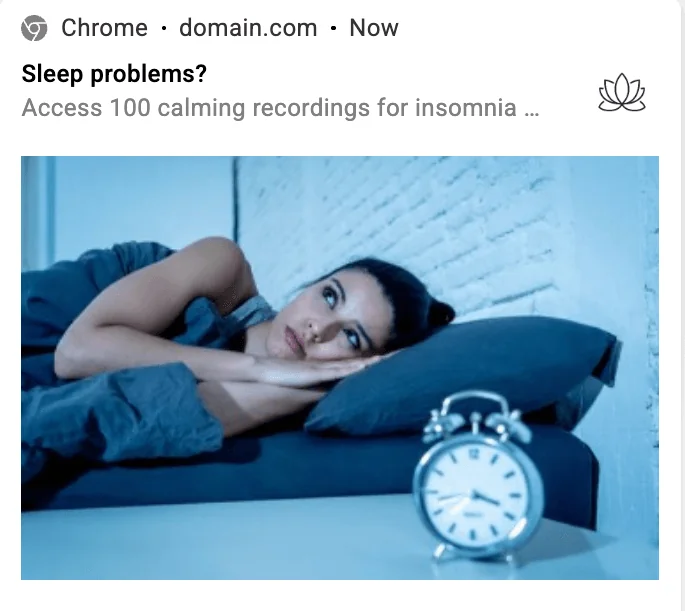
Authentic tone
Nothing is more relatable than a natural conversational tone, as Mobidea puts it:
“Not too polished. Use memes, POV, UGC, stories – something that feels like real life.”
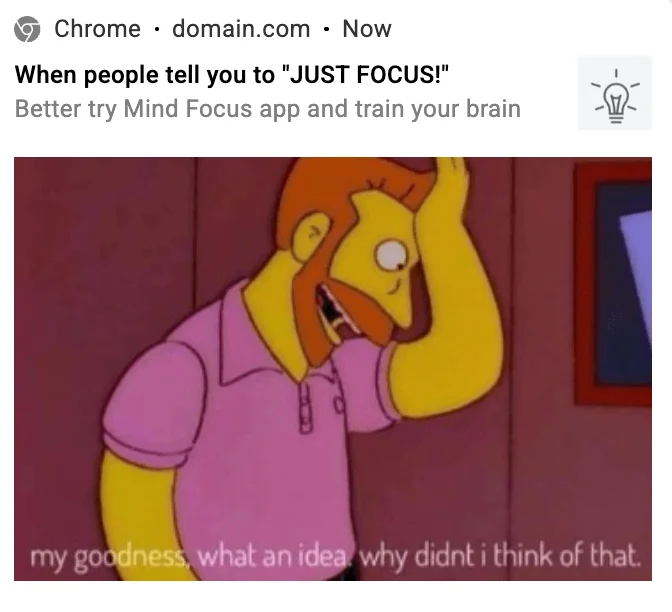
Visuals that soothe
Try soft color palettes, calming animations and emojis that match feelings:
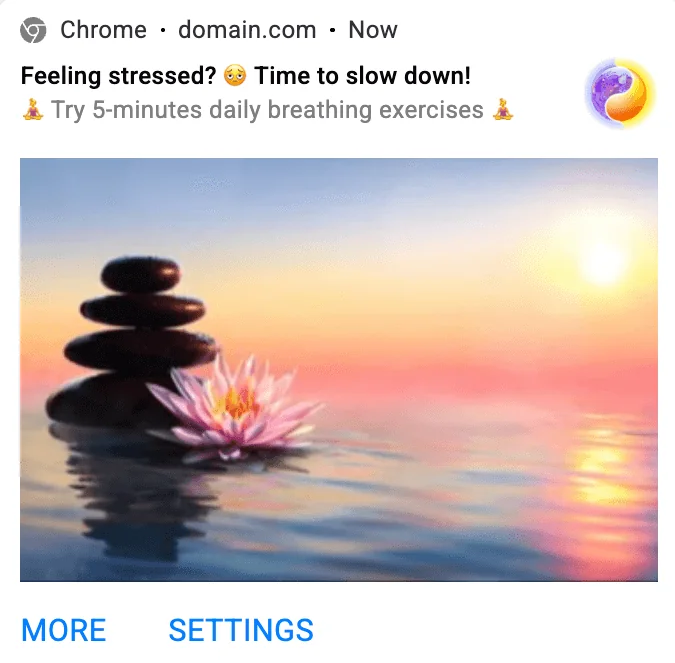
Mobidea sums up:
“The key is really to keep it simple, relatable, and low pressure. People just need to feel safe, seen, and supported in taking that first step.”
Final Thoughts: Affiliate Strategy with a Soul
While mental health is a trending vertical with huge income opportunities. When done right, affiliate marketers can get millions of desired conversions and clicks, while PropellerAds is always here, with tons of relevant traffic. But also…
“Understand who you’re targeting – and why. Use thoughtful, accessible language, and never forget the ethics,” – says Dr. Madeeha Rahim-Rasool.
So let’s keep it not only profitable and fun, but also responsible. And that’s where the future is heading!
Join our Telegram for more insights and share your ideas with fellow-affiliates!

